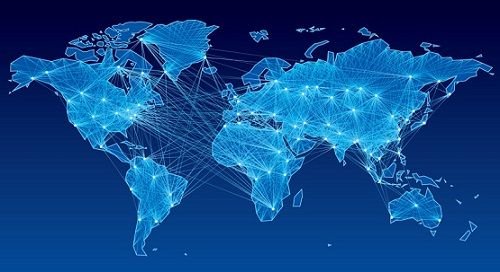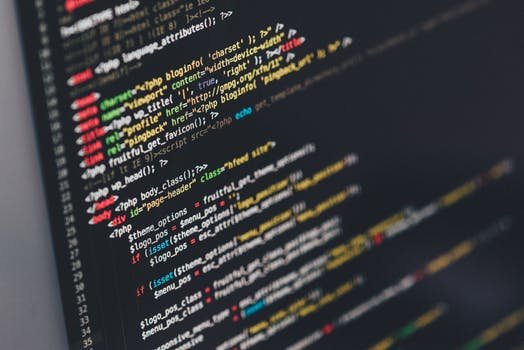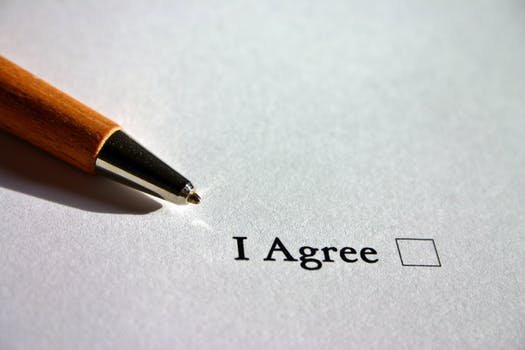
Hi guys,
Here is a small glossary and guide for those of you like myself, that have just started exploring the crypto world.
In the beginning it can be quite confusing, abstract and overwhelming with all the terminology and abstract concepts so in attempt to help others I have distilled it down to a basic guide. Hope it helps!
Bitcoin
Bitcoin is the first but certainly not the last, decentralized peer-to-peer payment network that has no owner, no central authority or middlemen. It is created, used and upheld by it's users. Note that the word network is in bold text and that is because alot of people simplify it by only refering to it as a digital currency/cryptocurrency when it is much more than that.
Crypto currency
So what is a cryptocurrency and how does it differ from fiat?
Crypto comes from cryptography which is the practice and study of techniques for secure communication and it has been around of thousands of years. Cryptocurrency is a medium of exchange just like the euro, dollar, pesos etc except for four basic differentiators.
- It is digital and not held as paper ('Yaay', say the trees!)
- It's value is determined not by some oligarchs that arbitrarily print it as they please, thereby devaluing it, but by it's users. The ones selling and buying it.
- Goverments have no control over your cryptocurrency contrary to fiat. They can't easily confiscate it and they cannot inflate it.
- It takes the monopoly of money creation out of the hands of the banks and into the hands of the people.

Blockchain
A digital ledger that holds a permanent, time-stamped record of encrypted transactions & data. Some are open source and some are not. Bitcoin was amongst the first sucessful open source Blockchains. Now lets break down what the Block and the chain is. Here is a great explanation from Investopedia
A block is the ‘current’ part of a blockchain which records some or all of the recent transactions, and once completed goes into the blockchain as permanent database. Each time a block gets completed, a new block is generated. There is a countless number of such blocks in the blockchain. So are the blocks randomly placed in a blockchain? No, they are linked to each other (like a chain) in proper linear, chronological order with every block containing a hash of the previous block.

Ethereum
In their own words:
"Ethereum is a decentralized platform for applications that run exactly as programmed without any chance of fraud, censorship or third-party interference."
The Ethereum network is a international network of interconnected computers (nodes) that enforce, execute and validate programs in a decentralized manner. No servers, CPU's or memory are required, as the "power" is provided by the thousands of ethereum nodes spread out across the globe. All those nodes make up what Ethereum calls an EVM (Ethereum Virtual Machine). It's aspects include the following:
Tokens
An object that represents value within a specific system. Or as wikipedia explains it: "a voucher that can be exchanged for goods or services, typically one given as a gift or forming part of a promotional offer."
Nodes & Miners
Machines that store blocks for the blockchain, maintain it and provide storage and computing power for the network.
Gas/Fuel
The tiny bit of money you pay for the nodes and miners providing their services to the network. See it as a huge highway with lots of roads that need to be maintained and upkept. When you drive your car on these roads you need to pay for gas in order to be able to get around. Now, that gas 'money' goes to the folks keeping the highway nice and clean for you.
ETH is the fuel for Ethereum. Steem is the fuel for Steemit.

Decentralized
To distribute the functions and powers amongst many and in so doing making a central authority unnecessary. Decentralized peer to peer networks make democracy not just a buzzword but actual reality.
Latency
The difference between the time you wish to do something and the time it takes to make it happen.
For example, you send off an email to a friend who receives it almost immediately, the latency would be low.
You send a letter throught the post instead and your friend receives it 4 days later, the latency would be high.
Scalability
The process whereby the system scales out efficiently and can smoothly expand and extend its reach.
Immutability
Mutation = The act or process of being altered or changed.
Immutability means something that can not be changed or altered over time. That is, uncapable of mutation.
Smart Contract
Think automation meets business/legal logic. If-this-then-that made sophisticated. But also a way for two parties to make a contract, agree on terms and penalties. Some smart contracts not only allow for the two parties to transact as agreed but it also can act as a court/judge if one party strays from the agreement.

Example
Dave commissions Christina to build a module for his e-commerce business. They agree on rates, delivery and milestones are set. The commission is sent by Dave, who receives a virtual recipt and the funds are locked until Christina delivers as promised. If she doesn't, the money will be refunded to Dave, with no risks taken. (Oversimplification)
Smart contract can be run on any blockchain but the one most popular right now is Ethereum. A great guide from Blockgeeks can be found here.
Trustless
In a trustless system the two parties engaging in an exchange or transaction are not dependant on a third party. They can exchange value or services without knowing each other or trusting each other. The game rules are fairly and justly programmed into the software so that they can interact without the risk of one cheating the other. The third party that is usually called a middleman can themselfes be corrupt, untrustworthy or unsafe in terms of storing your information, and that's on top of charging fees for a potentially unsafe service. In a trustless system, the third party is eliminated, thereby rendering the transaction safer and cheaper.

DAO-Decentralized Autonomous Organisations
This is huge and it's gonna change our current conservative and limited ideas of economic cooperation. It is literally a way to democratize business and make a better structured organisation with the possibility of more openness and instantaneous communication.
If you are like many others who severly dislike the corporate hiarchy ladder with arrogant, incompetent management and ungrounded CEO's, loads of bureauchracy, well then this might be something for you to keep an eye on since eqalitarian organistaions are actually finally possible . We are gonna start seeing more people coming together and creating organisations/corporations possibly based on a democratical and eqalitarian structure.

Example
Tom and his 10 associates get together and create a DAO. People can join as shareholders and back it up and in exchange for supporting the DAO financially, shareholders get DAO tokens, which they can then use to vote on the direction of the organization. They can use their tokens to vote on big governance issues but also on details such as how resources should be spent. In this way, the token holders or the shareholders can have total control over The DAO’s assets and its actions and possibly share in its earnings.
Now, you might have Ahmed and his crew on the other side of the world looking to build something useful for that DAO. They can submit their idea in the form of a proposal together with a smart contract. The shareholders could then vote to approve or not. If it is approved the code automatically executes payments so long as certain agreed-upon conditions are met.
DAO's are still in their infancy and its gonna be really interesting to see many different manifestations take form as more and more people discover this new way of doing business.
DAPP-Decentralized Applications
Distributed application that has its backend code on a decentralized network. Regular apps have theirs on centralized servers, thereby making your data more unsafe and at risk for hackers. They are not much different from the regular apps you use in your daily life except that they use the blockchains computing power and storage.
There you have it! May it help the newbies and help make the whole picture a bit clearer.
If this post was of value to you, do upvote and let me know what you would like to see more of! :)
Nice work, remember to re stem upvote comment and follow often! Keep up the good work
Thanks, will do!